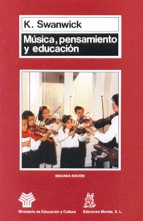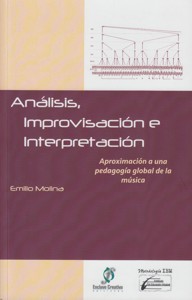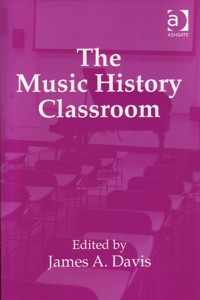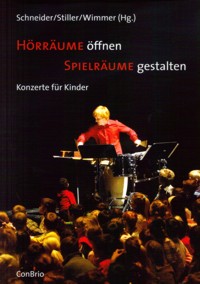
Musical Knowledge: Intuition, Analysis and Music Education
Swanwick, Keith
Routledge. 1994Ficha técnica
- EAN: 9780415100977
- ISBN: 978-0-415-10097-7
- Editorial: Routledge
- Fecha de edición: 1994
- Encuadernación: Rústica
- Dimensiones: 14x21,5
- Idioma: Inglés
- Nº páginas: VIII+208
Disponible
SÓLO 1 EN STOCK - dato actualizado el 31/01/26 a las 23:00¡GASTOS DE ENVÍO GRATIS!
PVP. 83,30€
Añadir a la Lista de deseos
Understanding and responding to music involves several layers of knowledge and insight; processes in which education has a crucial part to play.
The central concern of "Musical Knowledge" is the relationship between intuition and analysis as we engage with music. The dialectic is exposed on three levels: in considering music as a way of knowing; in the context of specific research into musical experience and music education; and as a productive tension in music teaching. This final part will be of direct practical help to teachers. Keith Swanwick suggests ways in which music education can be a vital transaction, giving examples across a range of music teaching, including school and college classrooms and instrumental studies. In addition to teachers, the book will be of interest to anyone who makes or responds to music.
CONTENIDO
List of illustrations
Acknowledgements
Introduction
Part I. Musical knowledge and value
1. The nature of musical knowledge
-The layers of musical knowledge
-First-hand knowledge
-Recurring patterns
2. Intuition, analysis and symbolic forms
-The claims of intuitive knowledge
-The aesthetic and the artistic
-Symbolic forms
-The role of analysis
3. Musical knowledge in action
-Setting up an experiment
-Interpreting the findings
-Musical knowledge and the politics of the curriculum
Part II. Researching musical experience
4. Research and the magic of music
-Measuring moonbeams
-Quality or quantity?
-Research processes
5. The development of musical knowledge
-Charting from the growth of knowledge
-Looking for validity
-Checking for reliability
6. Assessing musical knowledge
-Improving assessment
-Qualitative criteria
-Judging performances
-Probing audience-listening
-Education: a meeting place for intuition and analysis
Part III. Musical learning and musical teaching
7. Teaching for musical knowledge
-Intuition, analysis and teaching
-Attending to sound materials
-Working with expressive character
-Making sense of form
-Integrating musical activities
8. Instrumental teaching as music teaching
-Learning to learn
-Group interaction
-Literacy or fluency?
-The fourth finger on the A string
9. Curriculum and community
-Intuition, analysis and the curriculum
-Changing technology, servant or master?
-Cultural signals and musical value
Notes
Bibliography
Index






